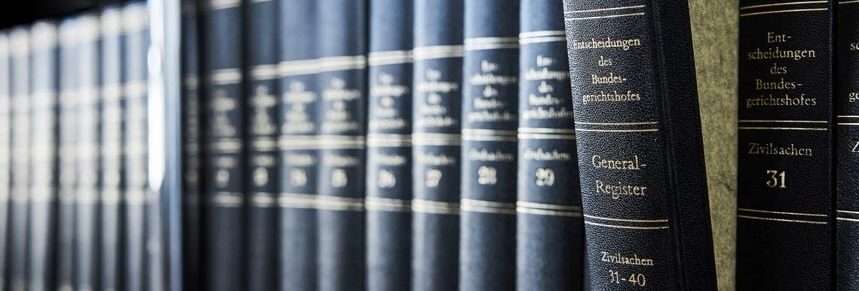
Latest News.
CQI report (FCJ) – Informal discussions between ETSI members
The Federal Court of Justice (judgement of 18 January 2022 – Ref. X ZR 14/20 – CQI Report) had to decide the question whether proposed solutions discussed in informal discussions between ETSI members have been made available to the public and are thus prior art according to Art. 54 (2) EPC.
1. FACTS
One day before the priority date of the patent in suit, a meeting of a ETSI working group was held in Kansas City. After the meeting was over, four participants from different companies still had substantive discussions. In the process, the participants discussed an approach to a solution. One of the participants of the meeting developed this solution as a standardization proposal (NK33 in the invalidity proceedings) the following night and sent it to the standardization committee the next day (priority date of the patent in suit).
2. JUDGEMENT
The Federal Court of Justice has ruled that proposals exchanged merely in informal discussions between ETSI members are not prior art under Art. 54 (2) EPC.
In accordance with the previous case law of the Senate, a written document is public if it is intended for processing in public and has become accessible to a circle of persons which is not limited per se and not only to individual persons (FCJ, decision of 9 February 1993 – X ZB 7/92, GRUR 1993, 466 – Fotovoltaisches Halbleiterbauelement). For this to be the case, a non-specified group of persons must have been able to take cognizance of the content of the document prior to the priority date. Accordingly, these principles also apply to oral statements.
In the case of statements made in the context of a meeting of an ETSI working group, a distinction must therefore be made between formal meetings and informal discussions outside these. In contrast to informal discussions between individual participants, the course of the meetings is regulated by an ETSI guideline. According to this guideline, a meeting chair leads the meeting and points out the competition rules to the members. In accordance with the decision of the Federal Court of Justice, documents introduced by a participant in a formal meeting are not to be regarded as confidential on the basis of the ETSI guidelines. Something else only applies if the documents are marked as confidential.
In contrast, according to the decision of the Federal Court of Justice, statements made to a limited number of participants outside of formal meetings are generally not available to the public. Accordingly, a participant in the meeting is likely to assume that statements made outside formal meetings will be treated as confidential by the other participants in the discussion. This also applies if the statements are made to employees of competitors. It is to be assumed that the other participants in the discussion will at most discuss the proposed solution with colleagues in the company.
3. PRACTICAL ADVICE
As a rule, plaintiffs in invalidity proceedings already have the problem of proving the content of conversations. According to this decision, the content of informal discussions, with exceptions, is not likely to be public and thus not prior art according to Art. 54(2) EPC, so that questions of proof will not even be relevant.
This decision is in line with previous Federal Court of Justice case law (GRUR 2013, 367 – Messelektronik für Coriolisdurchflussmesser; GRUR 1993, 466 – Fotovoltaisches Halbleiterbauelement). In the present case, however, one may question whether approaches to a solution, which are discussed in informal discussions but without a corresponding confidentiality agreement between different members of ETSI, are treated as confidential by all participants in the discussion. The decision reflects the rather generous attitude of the Federal Patent Court that conversations or documents were often to be considered confidential.
However, the European Patent Office follows a different standard in this question. The Boards of Appeal regularly assume the confidentiality of a conversation only if there is a confidentiality agreement or special circumstances (T 1085/92; T 1081/01).
Whether discussions between representatives of ETSI members are considered confidential by the participants leaves room for discussion. In any case, informal discussions are likely to promote technical progress, because it is precisely in these discussions that entirely new approaches can be discussed without directly discussing elaborated proposals in a large group. Apparently, the Federal Court of Justice does not want to take away the ground from these informal discussions. Participants in such discussions should nevertheless be careful about what ideas they disclose outside of public meetings if they have not already filed a patent application for the idea.
Carsten Plaga
